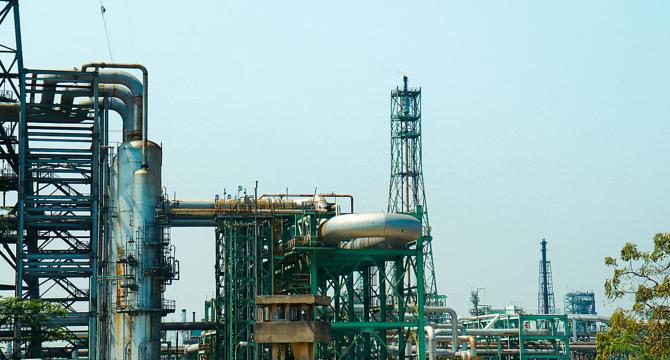Bloomberg Quint
1M
76

Image Credit: Bloomberg Quint
Israel–Iran Conflict: Impact On India Is Limited Due To Less Import Dependence
- The recent Israel-Iran conflict is expected to have limited impact on India due to its decreased import dependence on Iran, with India having stopped importing oil from Iran in 2020.
- In case average crude oil prices surge by 25% over a six-month period, India's trade and current account deficit may increase by $15 billion, equivalent to 0.3% of GDP, leading to a decline in real-GDP growth by 0.2% and an increase in retail inflation by 0.7%.
- India's heavy reliance on oil imports could result in a spike in Brent crude prices should tensions escalate further between Iran and Israel, impacting various sectors such as oil marketing companies, paints, automobiles, and cement.
- Israel's recent air strikes against Iran have led to the deaths of top military officials and nuclear scientists, causing oil prices to rise significantly, with brent crude trading higher at $74.96 a barrel.
- Iran, a significant global crude oil producer, is currently under a US embargo, with a major portion of its oil exports going to China.
- Iran's strategic control over the Strait of Hormuz and influence on the Bab el-Mandeb Strait through Yemen gives it the capability to disrupt global oil trade.
- Around 70% of oil supply to Asia, including India, passes through the Strait of Hormuz and Bab el-Mandeb Strait, highlighting the potential impact of any disruptions caused by the conflict.
- Past instances suggest that previous events involving Iran and Israel have not had a lasting effect on global oil prices.
- The ongoing missile and drone exchanges between Israel and Iran have resulted in casualties, with 224 reported by Bloomberg so far.
- The conflict has led to tension in the region, with implications on global oil trade and prices, although the impact on India is relatively limited.
- Despite the conflict, India's reduced import reliance on Iran and diversified oil sources contribute to a minimized direct impact on the country's economy.
- Israel's military actions against Iran have stirred international concerns, leading to fluctuations in oil prices amid fears of supply disruptions.
- While the conflict between Iran and Israel remains a point of global attention, India's economic exposure to the situation is buffered by its reduced dependence on Iranian oil imports.
- The events in the Israel-Iran conflict are closely monitored for potential impacts on global oil markets and trade routes, with India being watchful of oil price movements.
- The conflict highlights the geopolitical volatility in the region and its potential implications on global energy markets and trade relationships.
- Considering India's diversified energy sources and reduced reliance on Iranian oil imports, the immediate impact of the Israel-Iran conflict on India's economy is expected to be limited.
- The overall impact of the Israel-Iran conflict on India's economy is projected to be constrained, barring significant and sustained escalations leading to broader global economic repercussions.
- India's resilience to potential oil price spikes due to the conflict is bolstered by its strategic oil reserves and the availability of alternate energy sources, ensuring stability in its energy supply.
Read Full Article
4 Likes
For uninterrupted reading, download the app